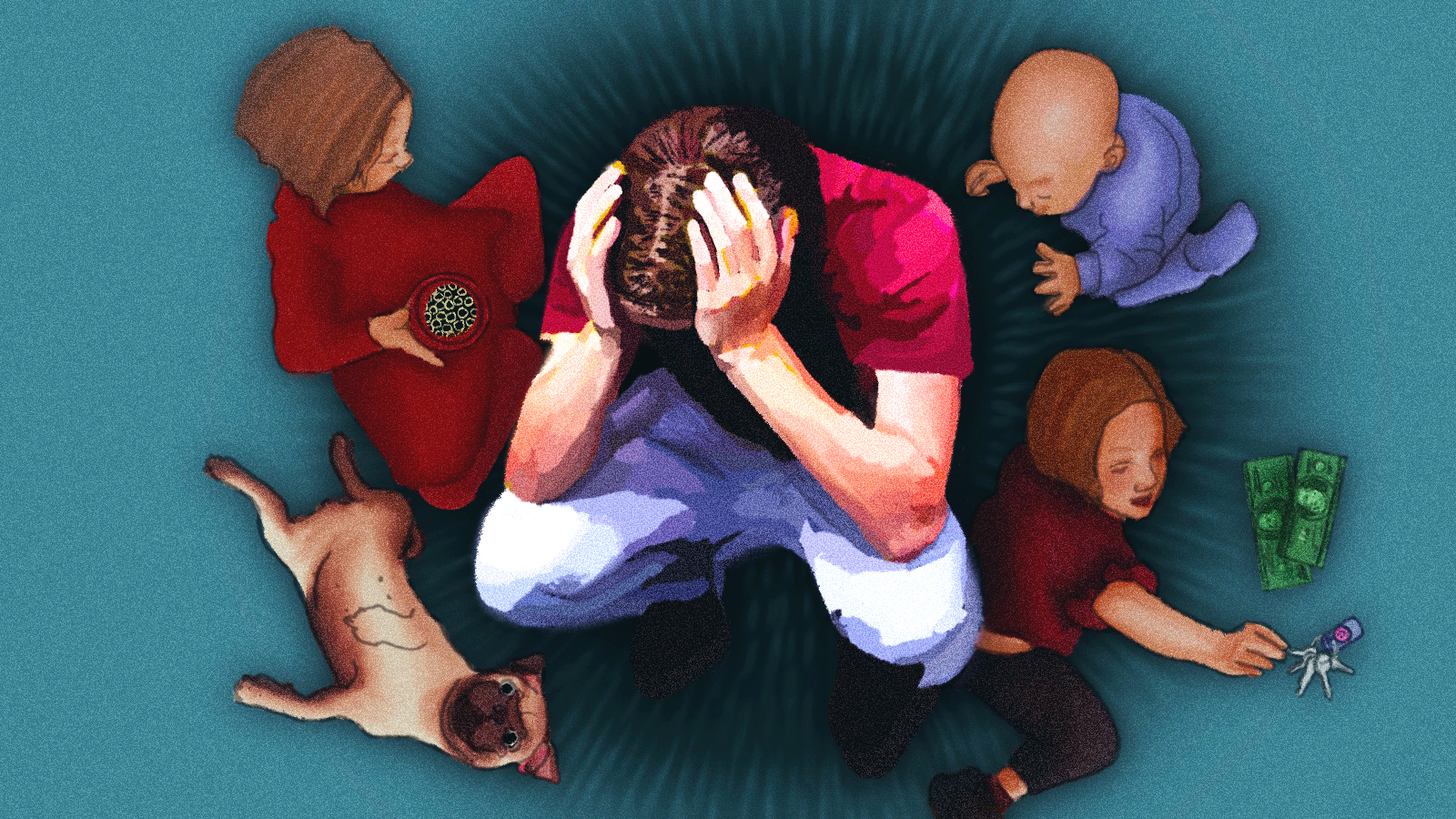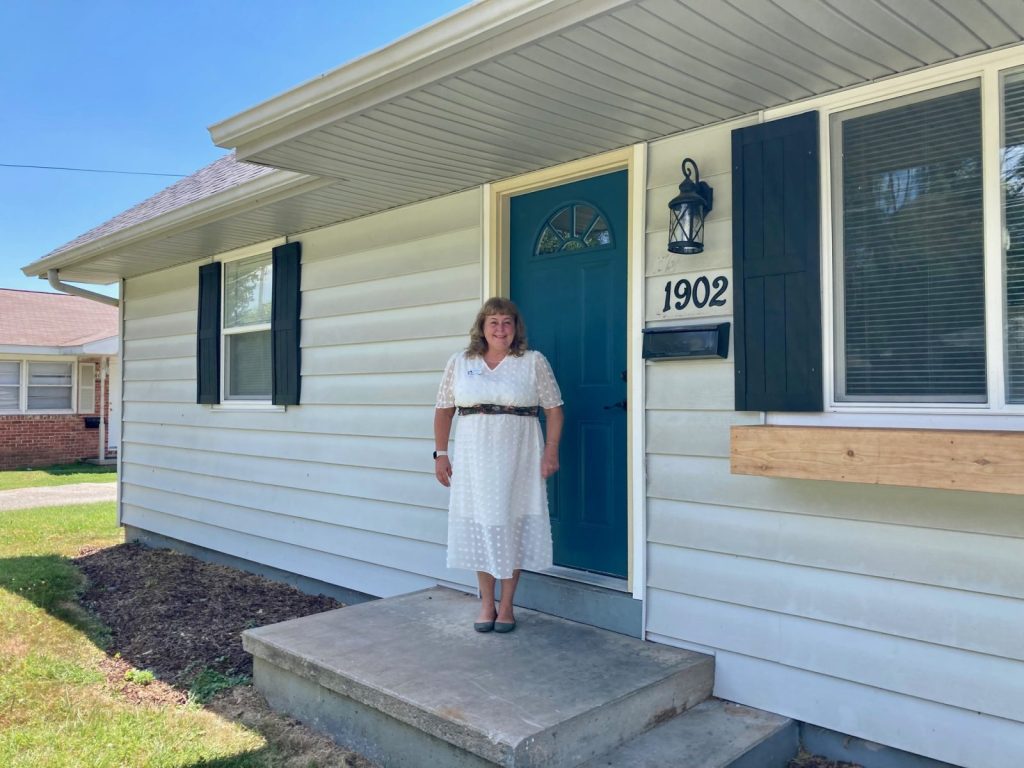Abigail Cool sometimes wonders how much earlier she would have left an abusive marriage if a powerful person in her church had not forbade her from leaving home to go to a shelter for abused women.
Cool, 59, lives in Nixa. She last saw David Colyer, then a high priest in the Reorganized Church of Jesus Christ Latter Day Saints, in 2005.
Colyer, a tall man, stood in the kitchen of a farmhouse Cool's family rented in Plattsburg, 40 miles north of Kansas City.
“David had come to our house and came into my kitchen, and it was a very small kitchen,” Cool says. “He was very close, probably as far as you are from me. And he just said ‘you do not belong in a women's shelter and I forbid you to drive to St. Joseph.'”
Cool was submissive and obeyed. She had been raised in the Reorganized Church of Jesus Christ Latter Day Saints, now called the Community of Christ church.
“His influence was so strong, he could have made a huge difference, but instead he disempowered me,” she says.
Later, while living in Vermont, Cool did go to a women's shelter, where she stayed for 30 days.
Church leader does not recall saying that
Colyer, 66, says he had counseled the couple, Paul and Abigail Cool, for years.
“It was 18 years ago. I don't remember specifically telling her to not go to a shelter,” Colyer told the Hauxeda. “That sounds awfully strong.”
Colyer said Cool often did not follow his counseling advice. He was asked if his counseling to her involved more than telling her to be more submissive to her then-husband.
“She did need to be more submissive in some areas, but not at the risk of abuse,” Colyer says. “It would have been more open (to other areas of Scripture) than that. Not as black and white.
“My efforts were to save the marriage, for the kids' sake. Paul and Abbie would have been better if the marriage had survived. But Paul went off the deep end. And that became untenable.
“There was abuse on both sides,” he adds. “It was not a good marriage.”
Cool, when informed of Colyer's comments, said this is exactly where pastors and faith leaders like Colyer miss the mark and do more harm than good. They mistakenly treat domestic abuse as a marital problem where both people have equal power and equal share of blame.
Domestic abuse is not a marital problem, Cool says; it is a matter of one person having power and control over another person.
She called the Daily Citizen after reading ‘Living in Fear'

Cool had contacted the Hauxeda after reading a story that was part of the Daily Citizen's reporting project on the issue of domestic violence in the Ozarks, called “Living in Fear.” It ran in May and June.
One story focused on how pastors and other church leaders can aid abusers and indirectly condone domestic abuse by counseling victims that they need to pray, submit to the male figure and forgive.
The couple have five children. Paul Cool eventually pleaded guilty in Vermont to engaging in a prohibited act with two women, ages 18 and 15. He was placed on probation.
Colyer lives in Butler, a small town south of Kansas City, and spends much of his time caring for his wife, who has Parkinson's disease. He no longer pastors a church.
Cool says she made a first step to contact Colyer in 2020 to talk about the shortcomings in his counseling that she now clearly sees. She stopped trying to reach him when she was informed that Colyer spent much of his time at home caring for his wife.
She was abandoned by parents, became a ward of the state

Cool told the Citizen she was born in Southern California. Her maiden name is Nepote.
Her family moved to Missouri when she was 12. She was abandoned by her mother and stepfather. She says the man sexually abused her.
“I walked to school on a Monday morning after staying at my girlfriend's that weekend,” Cool says. “I walked past my apartment and it was empty. It was vacant. They had moved away. Just left me on the street. I went to school crying.”
She became a ward of the state, and from ages 12 to 16 lived in a Catholic girls home in Dittmer, 40 miles southwest of St. Louis.
She was adopted by a couple who knew her mother. The couple lived in St. Joseph and worshipped at the Reorganized Church of Jesus Christ Latter Day Saints.
Cool quickly became involved in church activites in St. Joseph and met Paul Cool, who is four years older.
She ignored early warning signs. She says her new boyfriend told her to toss her guitar into a well because a former boyfriend had taught her how to play it. She did so.
He would correct her on details of her past, she says, even though he knew nothing about her past firsthand. She says he told her he had dreamt about events in her past and his dream version came from God, and therefore, was the accurate version.
She married him a year later. She was 18.
Abigail Cool says Paul allowed her to get a real estate license, but his family pushed back because they felt she needed to stay home and have children.
Her efforts to reconcile with the family backfired when she reached out to her brother-in-law.
When her husband found out, he accused her of “spiritual adultery” for overstepping what he considered marital boundaries.
He told children, ‘Your mother wants to leave you'

(Photo by Jym Wilson)
“Paul didn't ever physically assault me other than cornering me in rooms, or in corners on the floor, or on the bed, restraining me until I would relent to what he was saying. … If his opinion was God told him this, or God told him that, you couldn't refute that.
“He would humiliate me in front of my children, throw me into chairs, pin me against the wall, forcing me to publicly repent to church folk.
“Even if I went to the leaders of the church, like an elder, anyone, I would be accused of spiritual adultery and he would circumvent me and call them and tell them to please pray for me because I was so mentally ill.
“He would tell our children, ‘Your mother wants to leave you.'”
One church leader, she says, told her “if I wouldn't upset Paul he would be fine. Pray for him more, give him more sex. Take care of the children better.”
Over time, Cool says, she tried to become a “good submissive wife, a biblical wife, a godly wife, a godly mother.”
She finds ally, a social worker, in Vermont
Paul Cool decided to move to Vermont. So Abigail Cool and the children moved to Vermont.
It was there, she says, that she found an ally. It was a social worker in the Vermont Department of Children and Families who noticed that all five children were using adult words to describe her, such as:
“Mommy's mentally ill.”
“Mommy is spiritually adulterous.”
“Mommy is rebellious.”
Abigail Cool hired an attorney and obtained a divorce from Paul in Vermont.
“What I want to see done is that my story create more awareness in the church, the need for education and for the legal system to be way more trauma-informed and domestic-abuse informed than they are,” Cool said.
A degree and a new job

In June 2022, she graduated from Drury with a bachelor's degree in behavioral and community health.
In August 2022, she was hired as the first executive director of the Women’s Medical Respite, a Springfield no-cost shelter serving homeless women who need a place to recover after being treated for an acute medical need.
Even after all she's been through, Cool goes to church. She attends the Union Hill Church of Christ in Nixa, where she says she let leaders know that she will continue to assist victims of domestic abuse in any way she can.
Her commitment to assist victims — male and female — was embraced, says Steve Martin, who prefers the title of “preacher” or “just call me ‘Steve.'”
“We have others who also have that passion and who work in various areas with victims,” Martin says. “God has put that on Abbie's heart and we want to support that.”
This is Pokin Around column No. 130.

